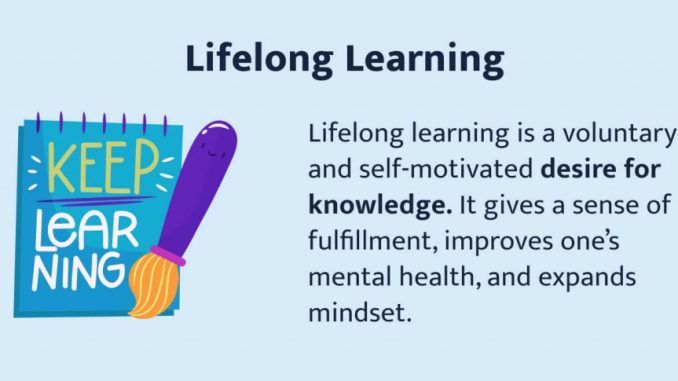
## Beyond the Classroom: Cultivating the Habit of Lifelong Learning
In an era defined by relentless change, where industries are reshaped overnight and knowledge obsolescence accelerates at an unprecedented pace, the concept of lifelong learning has transitioned from a noble ideal to an absolute necessity. The days when a degree marked the end of one’s educational journey are long past. Today, success, both personal and professional, hinges on a continuous commitment to acquiring new skills, adapting to evolving landscapes, and embracing a perpetual state of curiosity. Encouraging this intrinsic drive to learn, therefore, is not merely a pedagogical objective but a fundamental investment in individual resilience and societal progress.
At its core, fostering lifelong learning involves cultivating an insatiable curiosity and a genuine love for discovery. This begins in early education, where rote memorization should increasingly yield to inquiry-based learning. When students are encouraged to ask “why,” to explore beyond the textbook, and to discover answers for themselves, they develop an intrinsic motivation that transcends external rewards. Imagine a science class where instead of simply being told about photosynthesis, students design their own experiments to observe plant growth under different conditions. This hands-on, exploratory approach makes learning an active, engaging process, planting the seeds of curiosity that will ideally blossom throughout their lives. The goal is to move beyond simply transmitting information to inspiring a desire to seek it out independently.
Beyond formal education, creating environments that support continuous learning is paramount. In professional settings, this means fostering a culture where learning is not just encouraged but actively facilitated and rewarded. Companies can implement dedicated learning budgets, offer access to online courses and workshops, or establish mentorship programs. For example, a tech company in Bangkok might host weekly “Lunch and Learn” sessions where employees share new tools or methodologies they’ve explored, creating a peer-driven learning ecosystem. When employees see that their organization values continuous skill development and provides the resources to do so, they are more likely to invest their own time and energy in learning. This transforms learning from a personal chore into a shared organizational value.
Furthermore, leveraging the power of technology is crucial in enabling lifelong learning in the modern age. The proliferation of online learning platforms, MOOCs (Massive Open Online Courses), podcasts, and digital libraries has democratized access to knowledge on an unprecedented scale. Individuals can now learn a new language, master a coding skill, delve into historical research, or even pursue a passion like astrophysics from the comfort of their home, often at little to no cost. The key is to help individuals navigate this vast ocean of information, teaching them how to identify credible sources, curate relevant content, and structure their self-directed learning journeys. Providing guidance on how to leverage these tools effectively transforms casual Browse into purposeful learning.
Another significant aspect of encouraging lifelong learning involves reframing the concept of “failure” as a fundamental component of growth. In many traditional settings, mistakes are penalized, creating a fear of experimentation that stifles learning. A growth mindset, as championed by Carol Dweck, posits that abilities can be developed through dedication and hard work, and that challenges are opportunities for growth. When individuals understand that setbacks are not indicators of inadequacy but rather valuable feedback loops, they become more resilient and willing to take on new learning challenges. An entrepreneur who views a failed product launch as a lesson learned, rather than a definitive failure, is far more likely to iterate and eventually succeed, embodying the spirit of lifelong learning through experience.
Cultivating diverse learning pathways is also essential. Not everyone learns effectively through traditional lectures or reading. Some thrive through hands-on experience, others through collaborative projects, and still others through one-on-one mentorship. Providing a variety of learning opportunities—from workshops and seminars to peer-to-peer coaching and experiential learning—caters to different learning styles and keeps the learning process fresh and engaging. This flexibility ensures that individuals can choose approaches that resonate with them, making lifelong learning a more accessible and enjoyable pursuit.
Finally, and perhaps most importantly, recognizing the intrinsic rewards of learning is key. Beyond career advancement or financial gain, the act of acquiring new knowledge and mastering new skills brings a profound sense of personal satisfaction, intellectual stimulation, and enhanced adaptability. Emphasizing the joy of discovery, the expansion of one’s own capabilities, and the richness that continuous learning brings to life encourages individuals to pursue knowledge for its own sake. When people understand that learning is not just a means to an end, but a fulfilling journey in itself, they are far more likely to embrace it as a lifelong companion.
In conclusion, encouraging lifelong learning is a multifaceted endeavor that transcends formal educational institutions. It involves fostering innate curiosity from a young age, creating supportive learning environments in professional spheres, leveraging the vast resources of technology, reframing failure as a growth opportunity, and embracing diverse learning methodologies. By cultivating this pervasive habit, individuals not only enhance their own resilience and adaptability in a constantly evolving world but also contribute to a more dynamic, innovative, and enlightened society, truly embodying the spirit of continuous progress.